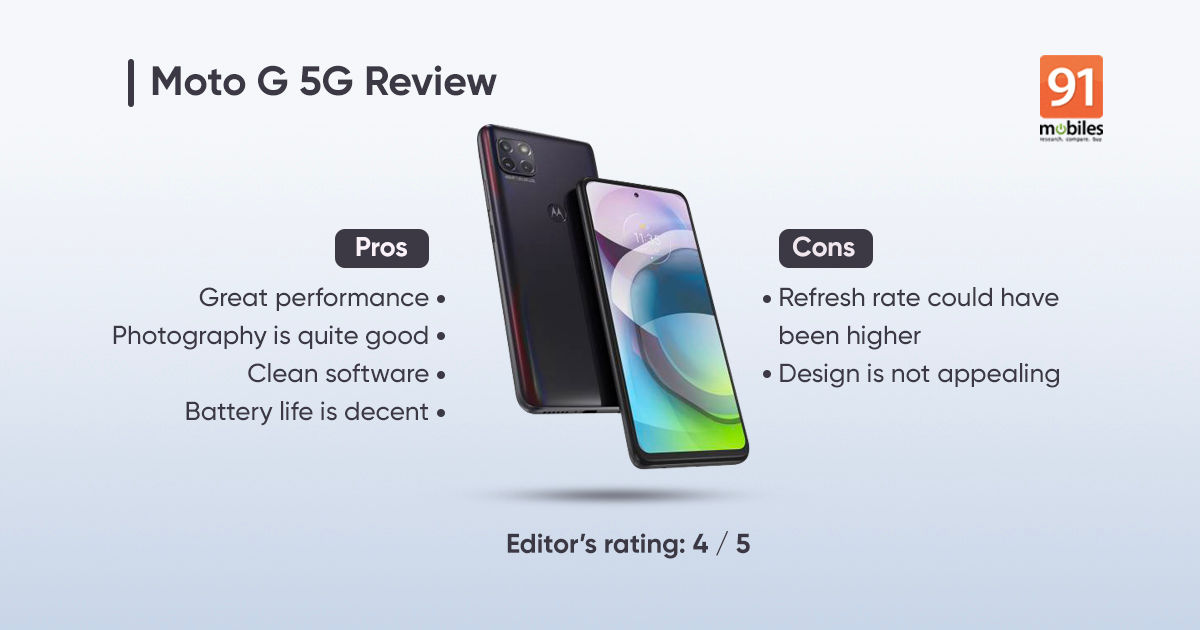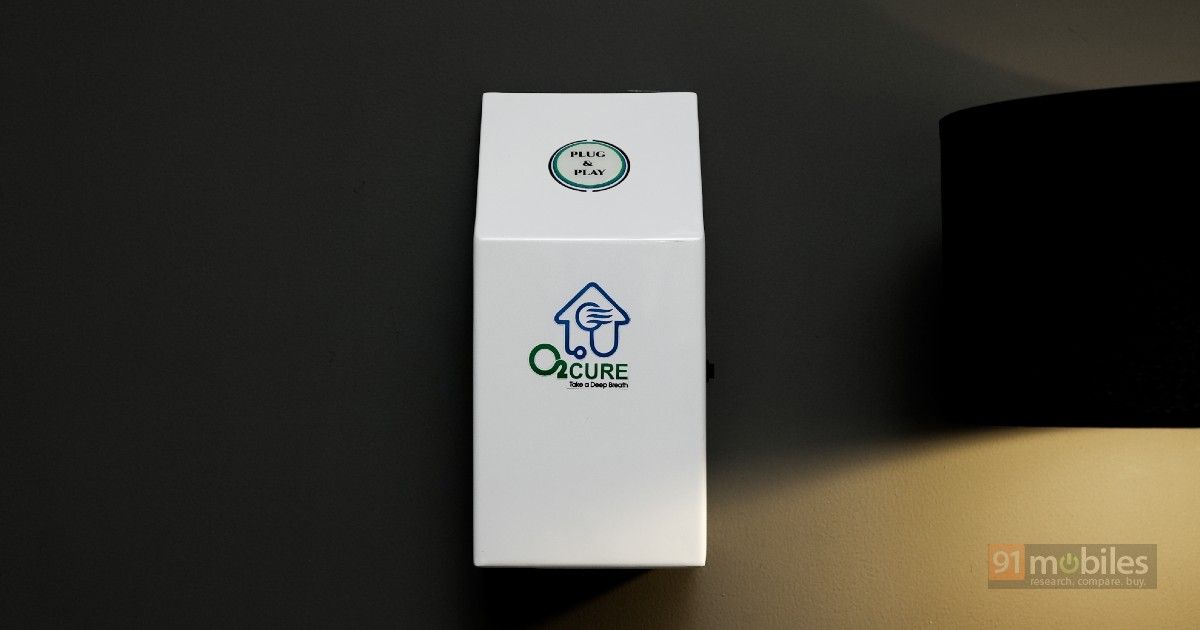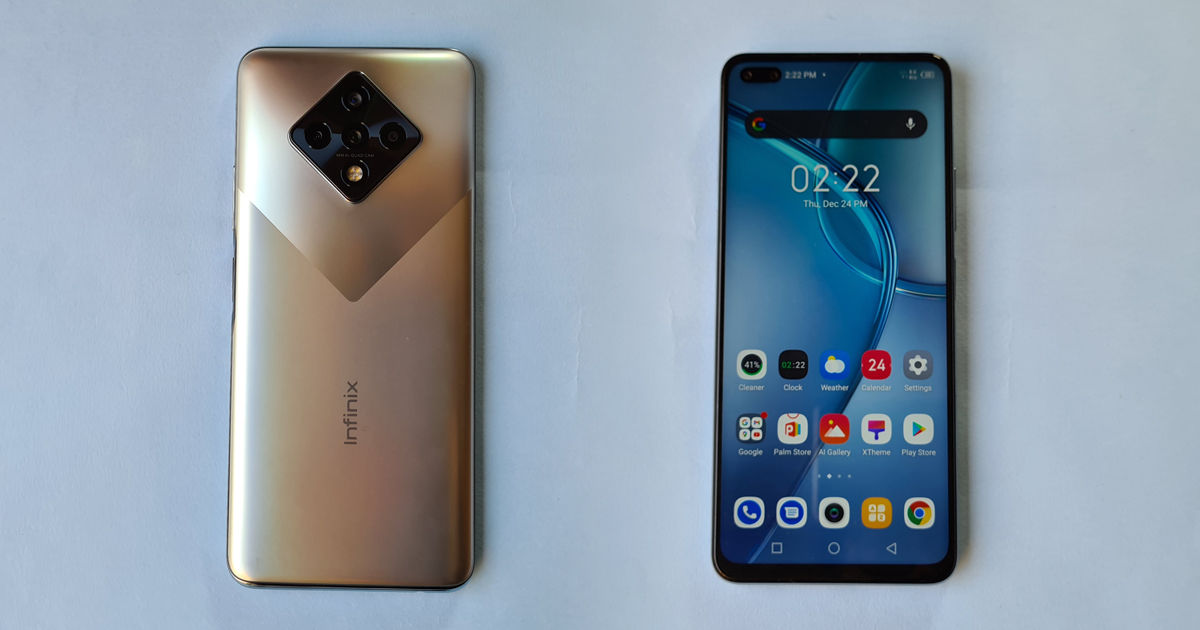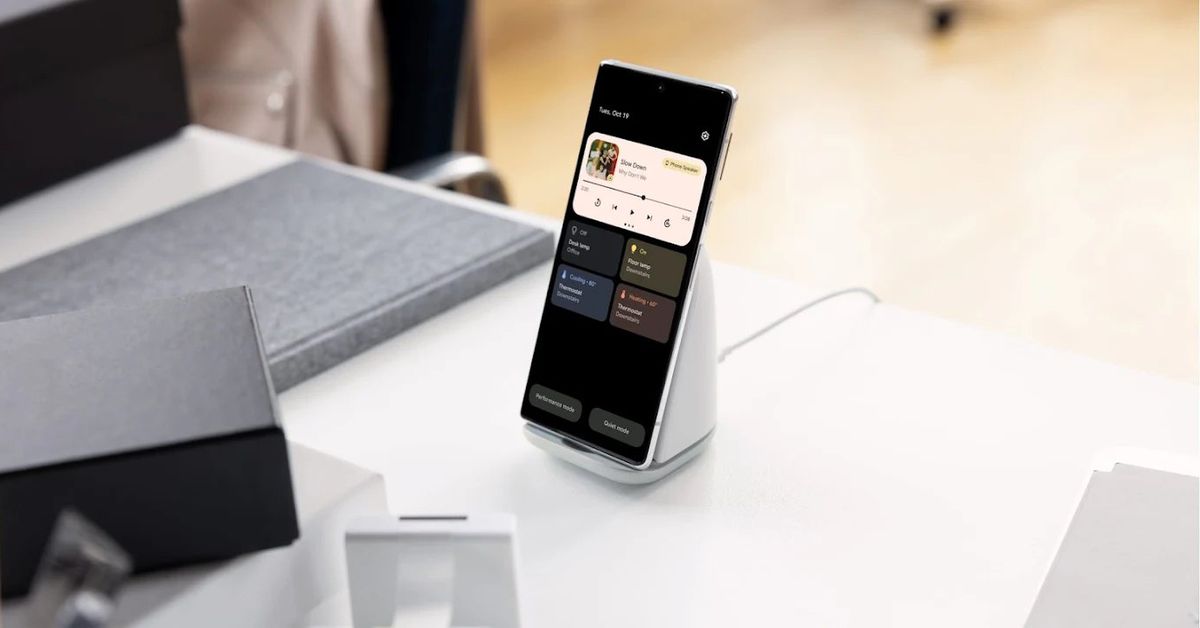Realme Narzo 30 5G review: a decent option, but one we’ve seen before
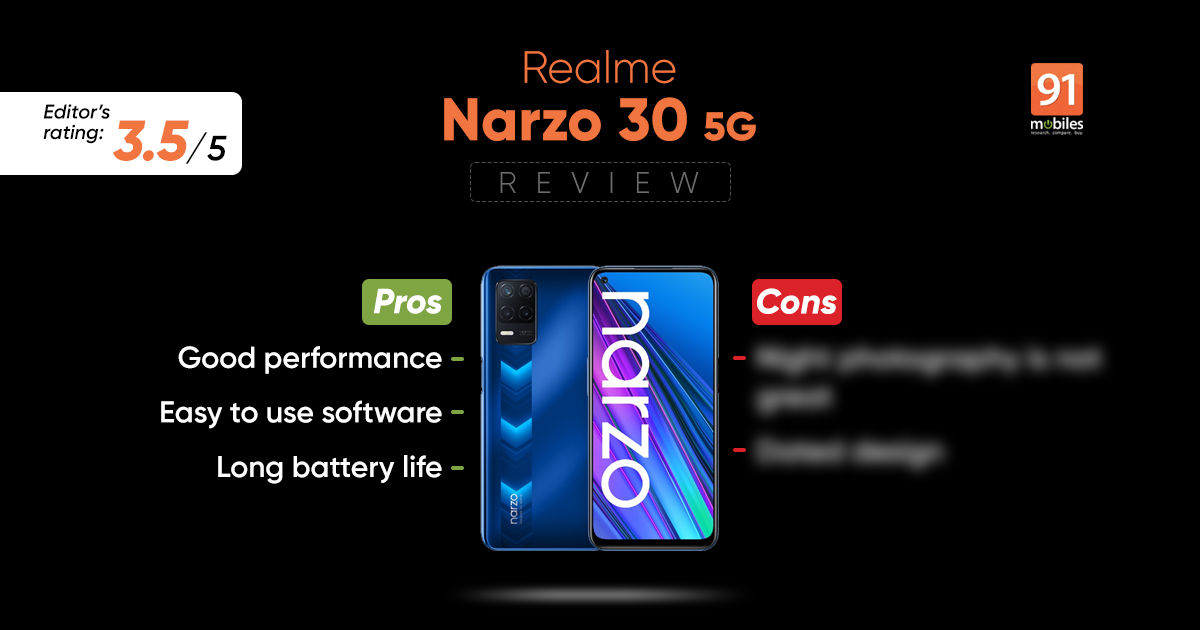
5G-enabled phones are increasingly making their presence felt in the Indian market, which makes sense to some extent since the country is gearing up to launch the next generation of broadband cellular networks. It has only been a few months since 5G capabilities started to trickle down to the affordable and mid-range phone segments after being privy to only higher-end devices. Realme has been actively launching 5G-ready smartphones, with the likes of the Narzo 30 Pro 5G, Realme X7 5G (review), Realme 8 5G (review), and others already in its portfolio. As of today, one more device can be added to its lineup of 5G products with the introduction of the Realme Narzo 30 5G. You should know that there is a 4G version of the device as well. The Narzo 30 5G is priced starting at Rs 15,999, making it one of the most affordable 5G-enabled phones in the market right next to the Realme 8 5G. Having reviewed the latter earlier, it appears that apart from the design, there is no other difference between the two. Let’s find out if the Narzo 30 5G is a worthwhile investment or if it is just another attempt by Realme to crowd the budget smartphone space.
Table of Contents
Verdict
The Narzo 30 5G is refashioned Realme 8 5G with a slightly different design and a base variant with a higher RAM option. While the device offers good performance and a decent software experience, the in-hand feel of the phone and its night photography capabilities leave a lot to be desired.
The lowdown
A glance at the Narzo 30 5G shows Realme’s usual design elements which were also quite prominent on the Realme 8 series as well. The rectangular hump for the camera housing, the glossy polycarbonate design, side-mounted fingerprint sensor, 8.5mm thickness and the placement of the 3.5mm headphone jack, USB-C port, and speaker grille are a carbon copy of the Realme 8 5G. Even the dimensions and weight of the two phones are identical. The key difference lies in the Racing texture strip which stretches from the cameras all the way to the bottom on the Narzo 30 5G. The tactility of the buttons has been retained as has the triple slot for two nano-SIM cards and a microSD card.
The display is a 6.5-inch FHD+ panel with 90Hz refresh rate and 20:9 aspect ratio. The selfie shooter is housed in a slightly large punch-hole on the top-right corner while the display is surrounded by noticeably wide bezels. Just like the Realme 8 5G, the Narzo 30 5G offers a good, punchy, and slightly saturated viewing experience. The refresh rate can be locked at 90Hz but you can dynamically change it to switch to 60Hz for apps that don’t support it. Brightness levels are also identical at 600nits which allows a decent viewing on the phone’s display under sunny conditions.
On the optics side, there is a triple-camera setup that comprises a 48MP primary shooter along with a 2MP macro lens and a 2MP depth shooter. The 4G variant of the device also harbours the same camera setup, as did the Realme 8 5G. Here is a brief summary of the image-taking capabilities of the Narzo 30 5G.
- Decent daylight photography with punchy colours and average dynamic range. Details look to be slightly oversharpened and exposure is handled poorly in some situations. Macro capabilities are slightly better than I had expected and portrait mode works well only when the subject is drowned in sunlight.
- Low light photography was not great, with shots turning out grainy with low external lighting on the subject. Oversharpening is quite prominent and washes over the details. The Night Mode does an average job on the clean-up process and needs more fine-tuning.
- The selfie camera on the phone has a 16MP sensor that takes selfies with vivid skin tones and sharpened facial features.
The Dimensity 700 5G chipset that powers the phone is a reasonably high-performing SoC in this price range, and is also present in the Realme 8 5G. The usual tasks that include switching between a number of apps, downloading multiple files while browsing social media apps and more can be performed with relative ease. You get a 6GB DDR4X RAM as the base variant on the Narzo 30 5G (the Realme 8 5G’s base variant comes with 4GB of RAM). The Dynamic RAM expansion feature that promises to bump up the overall RAM by 5GB by using some of the internal storage is also present. The storage options are 64GB and 128GB with UFS 2.1 standard. I ran the early access version of Battlegrounds Mobile India on the device and it was able to run on Ultra Frame rate settings with Balanced graphics settings. After an hour of continuous gaming, I did notice slight stuttering in the frame rates while the device heated up moderately.
Realme is offering dual-SIM standby 5G connectivity on the Narzo 30 5G which will cover almost all the bands in the 5G spectrum. Of course, there is currently no way to test this since only a small amount of trials are currently underway for 5G, and it will take time to get to the masses. Regular 4G networks worked fine on the phone and I did not face any call drop issues on Jio’s Noida network.
As far as software is concerned, you get the familiar Android 11 experience powered by RealmeUI 2.0. In a nutshell, it’s quite easy to use, customisation options abound, there are nifty features in Realme Labs settings, and the UI is snappy overall. You can also expect to get an update to Android 12 soon after the public builds are available. On the battery side of things, a 5,000mAh battery is present on the device, which lasts a day comfortably on moderate usage. It is accompanied by a relatively slow 18W charging solution that takes about 2 hours to fully juice up the device.
Final Verdict
The only difference between the Narzo 30 5G and the Realme 8 5G is that the base variant of the former offers 6GB of RAM instead of 4GB. That and the racing strip pattern on the back which, in my opinion, isn’t a very attractive look. I had concluded in my review of the Realme 8 5G that buying a budget smartphone simply because it promises 5G access while compromising on some key aspects is not a worthwhile investment. The statement is true for the Realme Narzo 30 5G as well. It is a decent phone in several aspects such as performance, software, and even daylight photography to some extent. However, in matters of the display, night photography, and overall design aesthetics, it takes a beating from the Realme 8 and the Redmi Note 10 Pro. If you’ve been a Narzo fan and just crave the first chance to use 5G when it’s available, go ahead and get the Narzo 30 5G. For the rest, there are plenty of better options available in the affordable space.
Editor’s rating: 3.5 / 5
Pros
- Good performance
- Easy to use software
- Long battery life
Cons
- Night photography is not great
- Dated design

